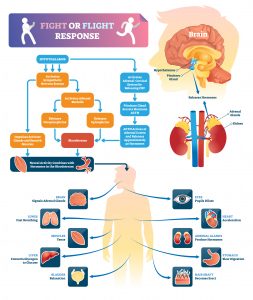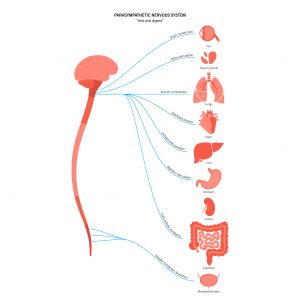This morning I looked outside my large living room window and was greeted by snow. It had started snowing early morning, and the weather had decided it was a good idea to continue throughout the morning. Granted it wasn’t much snow, but it was enough to squelch my plans for getting my planter boxes up and ready for summer. I wanted to cry. Or at the very least feel sorry for myself and frustrated with the prospect of having to find indoor projects when my heart yearned to be outdoors, planting and working in the yard.
Resigning myself to the fact I would be working indoors most of the day (I had plenty of chores waiting for me indoors) I brewed some extra strong coffee and settled on the couch. The view out the window really was beautiful and tranquil. My thoughts turned to all the change and turmoil going on in the world, our country, town, families and even myself.
We are hearing of impending food shortages, escalating tensions in the world leading to possible war, fuel prices skyrocketing, avian influenza, unusual weather patterns (I am personally experiencing) leading to crop failures, supply disruptions in all sectors of industry and on and on.
And the pandemic is still ongoing….
We are being challenged to manage our stress and way of life as it changes before our very eyes. I could provide statistics from NAMI (National Alliance for Mentally Ill) the CDC, WHO etc. about how, over the past 2 plus years anxiety, depression, substance abuse, domestic abuse and even suicide has skyrocketed; however, I am pretty sure we are all aware of the stress and strain we have all been through, so I won’t be going down that path. We will explore our reactions and hopefully provide some suggestions and solutions to manage these stressors.
To begin with, there are many causes for mental illness/mental distress. Some forms are genetic and some are environmental. Either way adding stress onto an already full plate of emotions can easily overwhelm even the most mentally robust person.
In the case of the population with serious mental illness such as bipolar or other challenges this can be excruciatingly difficult.
What is our goal?
Our nervous systems are designed to activate chemicals such as adrenaline when faced with danger or perceived danger.

This is the fight or flight mechanism kicking in that much of our industrialized society lives in daily. News reports, traffic, the escalating cost of basic necessities can be perceived as danger/stress in our lives. The reaction is to either try to leave the situation or face it head on with aggression. If leaving the situation isn’t an option (which in many cases it may not be) We may turn to self-destructive (aggressive towards self) behaviors such as alcohol abuse, overeating, self-harm, or domestic abuse.
We may feel helpless in our situation without the tools to navigate these uncharted waters. Our goal is to calm the nervous system down so that we feel safe and secure and able to deal with whatever challenges that may come our way.

The action rest and digest state is where our bodies heal, our immune system is able to function at its best, blood pressure lowers, digestion is triggered and our decision making, and focus is appropriate.
4 steps to go from Reaction (fight or flight) to Action (Rest and digest)
- Have a positive mindset
A positive mindset is essentially exercise for the mind. It gets stronger and easier the more you do it. Start to focus on what you can do about a situation and not about what you can’t do. For instance, given the skyrocketing food prices there is much chatter on the internet about starting a garden, something not possible in an apartment setting. What could you do instead? Look for solutions. Tower gardens, and even starting sprouts for your salads are easy and inexpensive ways to start to take control of your food supply.
Essentially, instead of turning to destructive behaviors, start to focus on how to turn lemons into lemonade.
- Don’t get stuck with self-limiting beliefs
Self-limiting beliefs, such as not being good at crafts, exercise, gardening, school and coursework, etc. may not be true at all. We may have picked up on these beliefs as we grew up, or decided it was easier to believe we couldn’t do something rather than trying and finding out we can do it, given the proper training and tools. Even if you aren’t successful, the only failure isn’t trying something you really wanted to try.

- Take control of your life
This goes along with # 1 and 2. Along with a positive mindset and trying out things you really wanted to do that you thought you couldn’t do is taking control of your life. What we put in our minds and bodies has profound effects on our wellbeing. Be aware of how much time you spend watching and listening to the news. Check in with your feelings. Take note- are you feeling empowered and able to tackle the challenges or does the news leave you feeling helpless and unable to cope? Food plays an important part of this equation. Along with adequate hydration (being slightly dehydrated can lead to feelings of depression) how you eat (not rushed, enjoyable atmosphere) and what you eat can have profound effects on your well-being. Be sure to eat adequate fruits and vegetables. Plan your meals ahead and if able, try to have foods and meals prepared ahead of time. This eliminates stress eating and the accompanying poor food choices.
Physical exercise plays an integral part of any self-care routine. A 15 minute walk every day has been proven to beat anxiety and depression in mildly depressed populations. While walking, focus on your surroundings. Take deep breaths and let go of negative thoughts.
Practice an attitude of gratitude. Write down 5 things you are grateful for every day, no matter how small. Do this for 30 days. It really is life changing!
Get good quality sleep, go to bed at a regular time (if possible) Have an evening routine. This signals your body it is time for bed and it will be easier to fall asleep. If you are having difficulty sleeping or falling asleep try turning off the wifi in your home and set your phone to airplane mode. Cellular signals and wifi can disrupt our sleep patterns. In addition, studies have found that blue light emitted from our computers and cellphones has negative effects on sleep and overall health
If you are on medication for any mental health condition, be sure to keep your appointments and have adequate supply of medicines on hand. This is one of the most important steps you can take in taking charge of your life.
- Reach out to community and loved ones for support
You are not alone in your feelings. Sometimes just talking out your concerns can turn a corner and bring solutions. One of the unintended consequences of the pandemic was social isolation. We are social beings with a need to connect with each other.
If unable to find positive, supportive community or loved ones you feel comfortable talking to seek online mental health counselling.
The following are a few websites and phone numbers that can help you navigate this terrain.
National Alliance for Mental Illness (NAMI)
Suicide Prevention Hotline 800-273-8255
National Domestic Violence Hotline
